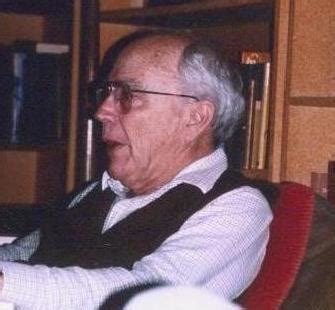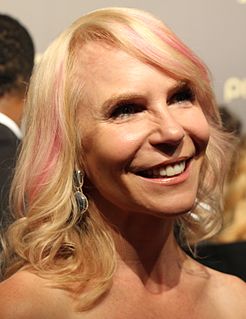A Quote by Marshall B. Rosenberg
The Indian philosopher J. Krishnamurti once remarked that observing without evaluating is the highest form of human intelligence. When I first read this statement, the thought, 'What nonsense!' shot through my mind before I realized that I had just made an evaluation.
Related Quotes
Actually, the highest form of human organization is not realized in the democratic individual. It is realized in a dimension none of us have ever penetrated, which is the mind of the species, which is actually the hand at the tiller of history. . . . It is an organized entelechy of some sort, and human history is its signature on the primates.
Regarding some of the super powers that I reference, like walking on water, I haven't seen people do that, but once you get into the science, a lot of it starts to make a lot of sense, for example, like people being able to read your mind. It's very logical, because words are just a grosser form of thought, and thought is just a grosser form of feeling.
Richard [Griffiths] was by my side during two of the most important moments of my career. In August 2000, before official production had even begun on Potter, we filmed a shot outside the Dursleys', which was my first ever shot as Harry. I was nervous and he made me feel at ease. Seven years later, we embarked on 'Equus' together. It was my first time doing a play but, terrified as I was, his encouragement, tutelage and humor made it a joy. In fact, any room he walked into was made twice as funny and twice as clever just by his presence.
I think my biggest problem as a creative person trying to work within a business for profit was that it was very important to me that people liked me. Over the years, observing other showrunners who made work that I so admired, I realized that that had to go. This couldn't be my first priority. My first priority had to be the work.
It was like that class at school where the teacher talks about Realization, about how you could realize something big in a commonplace thing. The example he gave--and the liar said it really happened--was that once while drinking orange juice, he'd realized he would be dead someday. He wondered if we, his students, had had similar 'realizations.' Is he kidding? I thought. Once I cashed a paycheck and I realized it wasn't enough. Once I had food poisoning, and realized I was trapped inside my body.
To many, Indian thought, Indian manners; Indian customs, Indian philosophy, Indian literature are repulsive at the first sight; but let them persevere, let them read, let them become familiar with the great principles underlying these ideas, and it is ninety-nine to one that the charm will come over them, and fascination will be the result. Slow and silent, as the gentle dew that falls in the morning, unseen and unheard yet producing a most tremendous result, has been the work of the calm, patient, all-suffering spiritual race upon the world of thought.






































